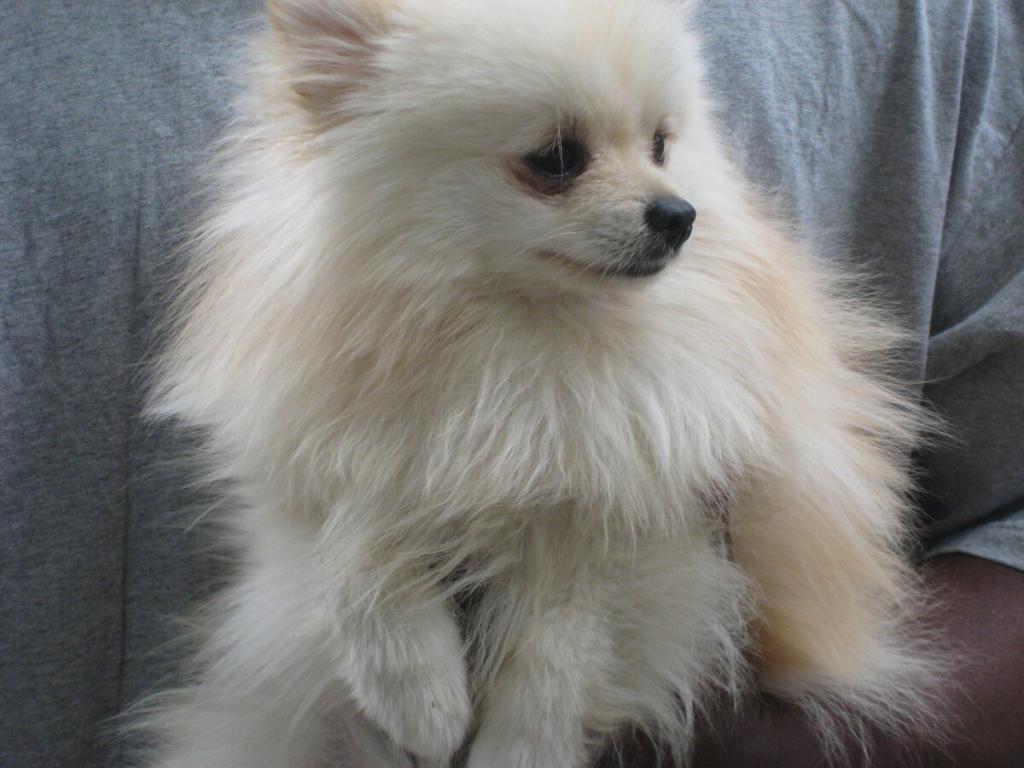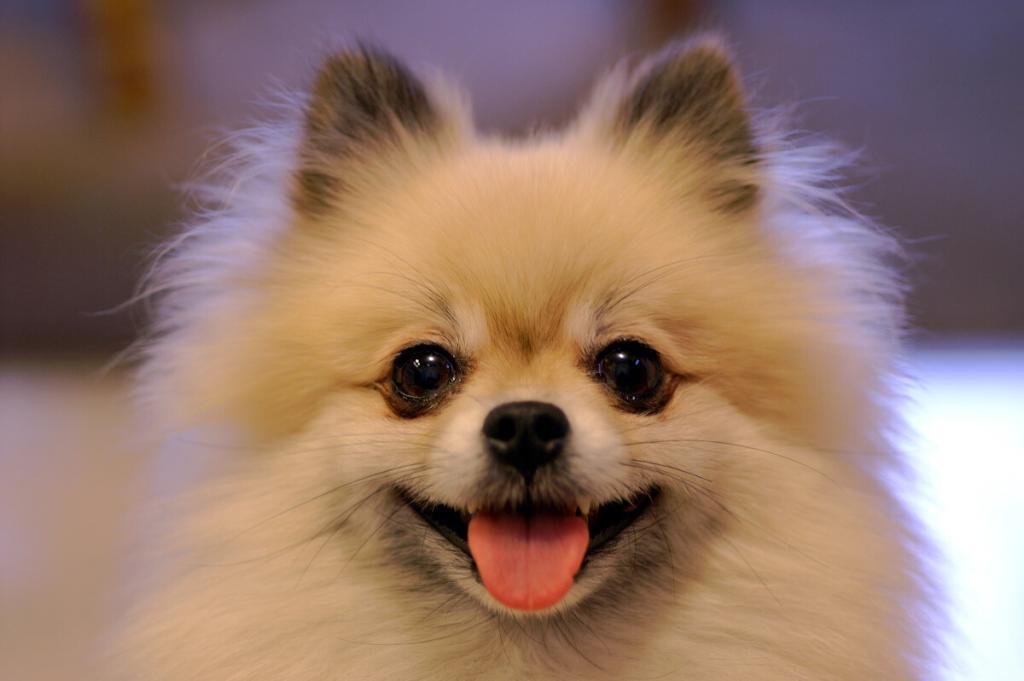In the bustling world of dog breeds, the Pomeranian stands out like a quiet poem amidst a cacophony of sonnets: small, dainty, yet robust in personality. As you consider welcoming one of these fluffy companions into your home, it’s essential to understand the complexities of their care and the joys they bring.
With their energetic attitude and luxurious coats, Pomeranians demand a certain level of attention that’s as unique as their spirited bark. They’re intelligent and trainable, sure, but don’t let their size fool you; they have needs as large as those of their bigger canine counterparts.
From their exercise regimen to their grooming requirements, there’s much to explore about these pint-sized pets. So, you must ask yourself, are you ready to discover what lies beneath that soft exterior and whether you can provide the care these charming creatures rightly deserve?
- Noise Level
- Energy
- Sociability
- Trainability
- Care
- Health
Overall
Summary
The Pomeranian breed is known for its moderate noise level, high energy, and sociable nature. They are moderately trainable and require regular grooming and care to maintain their fluffy coats. While generally healthy, they may be prone to certain health issues.
Pomeranian: Traits, Temperament, and Care Guide
Displaying a spirited personality within their tiny frames, Pomeranians boast a unique combination of traits, including high energy, sharp intelligence, and a luxuriant double coat that requires diligent grooming. As a member of the Pomeranian breed, you’ll find they’re good companions, always ready to engage with their human families. Their temperament is marked by alertness and curiosity, necessitating mental stimulation to prevent boredom.
They’re prone to certain health issues, including dental problems and luxating patella, so you’ll need to be proactive in their care. Regular grooming of their fluffy double coat is essential to maintain their appearance and prevent matting. These cheerful dogs need daily exercise to channel their boundless energy, although their exercise needs can be met with lively indoor games or short walks.
Exploring the Characteristics of the Pomeranian
The Pomeranian’s characteristics reveal a breed defined by a compact stature, a voluminous double coat, and an ever-vigilant expression, all solidifying their status within the Spitz family. As a proud member of small dog breeds, the Pomeranian boasts a thick double coat that demands regular grooming. Your loyal companion, this breed is intelligent and energetic, requiring you to provide regular exercise and opportunities to be socialized with other dogs to maintain their well-being.
| Trait | Description | Consideration |
|---|---|---|
| Size | Compact and manageable | Fragile build, handle with care |
| Coat | Thick double coat, various colors | Requires frequent grooming |
| Temperament | Fearless, energetic, loyal | May tend to bark |
| Exercise Needs | High energy, needs regular exercise | Prevents behavioral issues |
| Health Concerns | Prone to dental issues, luxating patella | Regular dental care, vet check-ups |
Note the Pomeranian’s inclination towards certain health problems and prepare to mitigate them carefully.
Pomeranian: A Comprehensive Profile and Guide
You’re about to explore a comprehensive profile and guide on Pomeranians, ensuring you’re well-informed about this distinctive breed.
This section covers everything from the breed’s origins and temperament to specific care requirements that maintain their health and vitality.
You’ll learn the essential aspects of Pomeranian ownership, from grooming needs to exercise routines, to help your pet thrive.
Everything You Need to Know
Delving into the world of Pomeranians, you’ll find a breed with a rich heritage, marked by its distinctive fluffy coat and sharp intelligence, requiring dedicated care and training to ensure a well-balanced companion. These toy breed dogs are more than just their adorable appearance.
To fully embrace life with a Pomeranian dog, consider the following:
- Health & Grooming: Tackle potential dental problems and maintain their coat with regular grooming.
- Training & Socialization: Consistent training from an early age mitigates housetraining challenges and promotes good behavior.
- Lifestyle Compatibility: Despite their small size, Pomeranians are adaptable, making them suitable for apartment living and good with children, especially if socialized early.
As recognized by the American Kennel Club, spitz dogs like Pomeranians are cherished for companionship. Follow these care tips to forge a deep bond with your fluffy friend.

Discovering the Temperament
PomeranianBrimming with intelligence and enthusiasm, Pomeranians exhibit a temperament that’s both alert and affectionate, making them excellent companions for various living situations. As companion dogs, their small size hides big personalities. This breed is known for being clever and loyal, which endear them to individuals seeking good family pets. Pomeranian dogs are protective and may assume the role of a guard dog, displaying a surprising level of assertiveness.
These natural extroverts are lively and playful, ensuring Pomeranians are good with family environments when properly socialized. They’re quick learners, responsive to training techniques like clicker-training and positive reinforcement. However, they may develop small-dog syndrome without disciplined guidance, making early and consistent training essential for a well-rounded temperament.
Pomeranian: Is It a Good Fit for Families?
Considering a Pomeranian as your family’s next furry member?
Their affectionate, loyal nature makes them well-suited for families, particularly those with older children who understand the necessity of gentle interaction.
Their need for consistent grooming and dental care, alongside their small stature requiring vigilant supervision, means they fit best with families committed to their care and who can provide a safe environment for this tiny companion.
Assessing Pomeranian’s Compatibility with Families and Kids
When assessing whether a Pomeranian is a suitable addition to your family, it’s essential to consider their compatibility with children and the household dynamic. Pomeranians can be a good fit for families, particularly when certain conditions are met:
- Age of Children: Pomeranians are small dogs that might injure easily, so they’re better with older children who understand how to interact gently.
- Training Engagement: These playful canines enjoy learning tricks, and involving the whole family in training can enhance the bonding experience.
- Living Arrangements: Given their adaptability, Pomeranians are great for families with small living spaces, such as apartments, as long as they exercise regularly.
As pet parents, ensuring that your fluffy companion will generally get along well within your unique family dynamic is crucial.
Pomeranian Adaptation Traits
Pomeranians adapt well to apartment living as long as they receive adequate exercise and proper training to prevent behavioral issues. Despite their small size, they need a lot of exercise to maintain their well-being. These ideal companions are quick learners, facilitating successful house training and instilling good behavior. The Pomeranian’s long, luxurious double-layer coat offers protection against cold weather, showcasing their excellent adaptation traits.
Yet without early socialization, they may develop small-dog syndrome, which underscores the necessity of proper guidance. Pomeranians’ loyalty and protective nature make them good guard dogs, even in a compact living space. To ensure your Pomeranian thrives, foster a structured environment where they feel they belong, ensuring their adaptation to apartment life is seamless and fulfilling.
Pomeranian Obedience Tips
You’ll find that beginning obedience training early with your Pomeranian is crucial for instilling desirable behaviors.
Employ positive reinforcement techniques, rewarding your pet with treats and praise to reinforce good conduct effectively.
Effective Training Strategies
Initiating training and socialization at the onset of puppyhood can lay the foundation for a well-behaved Pomeranian, curtailing tendencies like excessive barking or aggression. As a proud Pom dog owner, you’ll find that your fluffy companion is a smart breed and generally easy to train with the right approach. Consistent positive reinforcement training will engage their attention and affirm their efforts.
Here’s a detailed table to help you with Pomeranian puppy training:
| Training Aspect | Strategy | Benefit |
|---|---|---|
| Socialization | Expose to various settings and individuals | Prevents aggression, builds confidence |
| Positive Reinforcement | Praise and clicker-training | Encourages learning, enhances bond |
| Consistency | Regular training sessions | Fosters obedience, reduces confusion |
| Exercise Monitoring | Tailored play to prevent joint strain | Maintains health, mitigates behavior issues |
| Mental Stimulation | Interactive games and activities | Keeps them sharp, prevents boredom |
Exercise and Grooming Needs
To ensure the well-being of your Pomeranian, it’s crucial to adhere to a regimen of regular grooming and exercise.
Pomeranians make excellent companions as a toy dog due to their small size, but they still need ample opportunity to run around. Despite their diminutive stature, they require a fair amount of daily exercise to remain content and healthy.
Their thick fur coats demand consistent grooming to avoid matting and manage shedding, which can range from moderate to heavy. Brushing and occasional trimming are part of their grooming needs, alongside regular dental care to prevent dental issues. Trimming their nails is also necessary.
Health Considerations
As you consider Pomeranians’ health, be aware they’re susceptible to certain conditions such as dental issues and luxating patella. You must ensure they receive regular dental care and veterinary check-ups to maintain their overall health and longevity.
Proper diet, exercise, and portion control are also critical to prevent obesity, which can exacerbate joint problems and other health concerns.
Common Health Issues and Lifespan
Pomeranians typically enjoy a lifespan of 12 to 16 years, yet certain health issues can affect their overall well-being and longevity. These health issues include patellar luxation, coat loss, and collapsing tracheas. Pomeranian owners need to be aware that, while these small breeds tend to live long lives due to their small size, they are predisposed to certain health conditions. Hip dysplasia, though less common than in larger breeds, can still occur. Regular guidance from your vet ensures early detection and management of these conditions.
Desexing Pomeranian puppies at about six months is recommended to prevent future health issues. Reputable Pomeranian breeders prioritize health, so choosing one carefully can enhance the chances of a robust companion. Ensuring proper exercise and diet bolsters their health, fortifying your bond for years to come.

Is Pomeranian the Right Dog for You?
Considering Pomeranians’ unique needs and characteristics, you should assess whether your lifestyle can accommodate their high energy, grooming requirements, and potential health concerns.
The Pomeranian is considered a small breed, yet it boasts a vibrant and spirited personality. If you’re seeking a family companion, Pomeranians can be good candidates, bonding deeply and getting along well with their human pack. However, ensure you’re prepared for the grooming commitment; their luxurious double coat demands regular care to stay in top condition.
When introducing Pom puppies into your home, remember that they must be handled with care due to their delicate structure. The best dog for you’ll match your energy, time, and ability to provide for their well-being, including addressing any breed-specific health issues.
Alternatives for Pomeranian: Charming and Vivacious Toy Breeds
Explore these breeds if you appreciate the Pomeranian’s charm and vivaciousness, perfect for those who love lively and affectionate toy dogs.
| Similar Dogs | Short Description |
|---|---|
| Papillon | Known for its distinctive butterfly-like ears and lively, friendly temperament. |
| Yorkshire Terrier | A tiny breed with a big personality, ideal for companionship and city living. |
| Chihuahua | A small breed with a large personality, perfect for small-space living. |
| Maltese | A gentle and affectionate toy breed, known for its luxurious white coat. |
| Toy Poodle | Highly intelligent and versatile, excellent in various dog sports and activities. |
Conclusion
In conclusion, welcoming a Pomeranian into your life is akin to capturing sunlight in your home—radiant and warm. They demand your tender care, from vigilant grooming to mindful exercise.
Heed their health needs to ensure your fluffy confidant thrives. If you’re seeking a spirited soul in a petite package, this breed might just be your perfect match.
Embrace their energy and cherish their loyalty, and your Pomeranian will become an irreplaceable thread in your life’s fabric.
